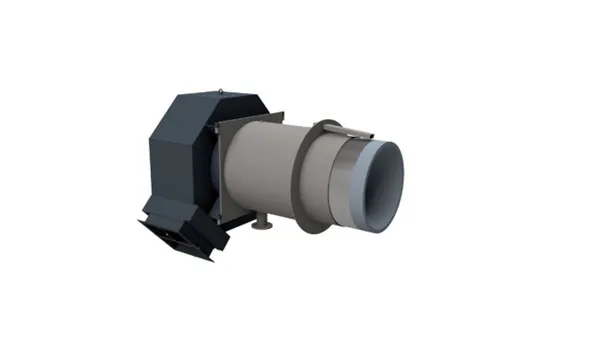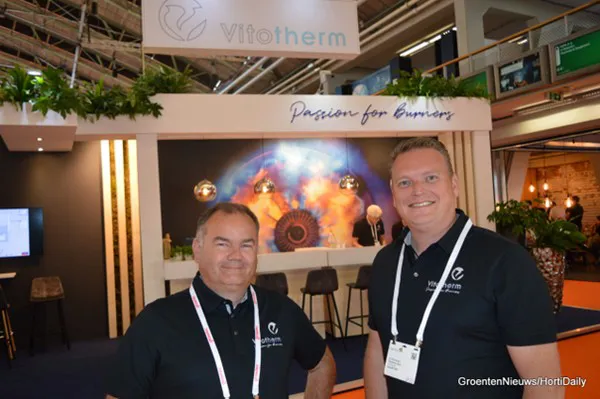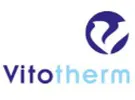In high-temperature combustion processes, the nitrogen N2 contained in the intake combustion air reacts with oxygen O2 in such a way that nitrogen oxide is formed. This creates emissions of NOx (NO + NO2). These emissions must obviously be as low as possible for our environment. In horticulture, the flue gases from that combustion process are used to get CO2 into the greenhouse - so in doing so, you also want to keep the proportion of NOx as low as possible.

Until now, a NOx content of 35mg, emitted by burners, was around the lower limit in Dutch horticulture, say Geert-Willem van Weert and Ed Roeleveld of Vitotherm. "Below 35mg, several challenges arose that could not be solved easily, while requirements are getting stricter worldwide. In some US states, 5ppm (10mg) is the max, and also, in several parts of the world, lower than 30mg is demanded as the norms become stricter. And that is what we have developed a burner for. The power range runs from 0.6 to 10 Mega Watt. We take into account the certifications and regulations in each country.
First burner will be in operation by autumn
The new burner works according to a different combustion principle, achieving much lower emissions. A flue gas cleaner is not needed. Tests of the prototype carried out by the entrepreneurs in a laboratory setup were more than successful. The results were below the expected 10 mg. The final engineering phase for the new burner line has entered, and so are now ready to bring it to market, Geert-Willem and Ed Roeleveld tell us about the new burner, which will be called NOxtreme®. The first burner is on order and will be commissioned towards autumn. The requirements of this burner are <18mg @3% O2. (9ppm).

Geert Willem van Weert and Ed Roeleveld
So the burner was initially developed for the foreign market but may also be of interest in the Netherlands, given the nitrogen problem here. "When we started working on it, the nitrogen discussion was not so much in play here. But we expect something from it in the replacement market in the Netherlands as well. Suppose you have expansion plans as a company, and you replace your burner with this new one, you also get lower nitrogen deposition."
All in all, this new burner is a huge step for Vitotherm, conclude Geert-Willem and Ed. "A boundary has been crossed, which we didn't know was possible a year ago."
For more information:
Geert-Willem van Weert 
Vitotherm
Lorentzstraat 1, 2665 JG
Bleiswijk, the Netherlands
Tel.: +31 15 3030 071
[email protected]
www.vitotherm.nl
